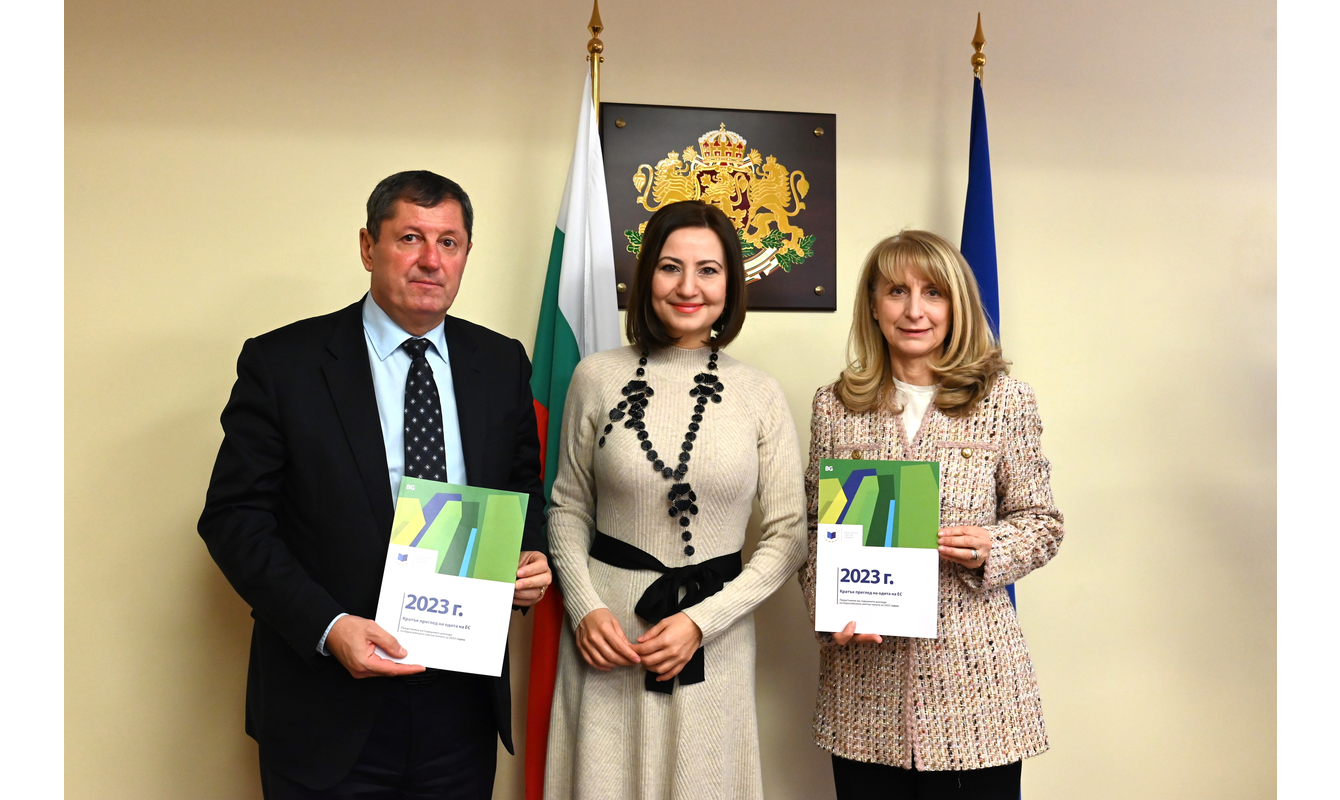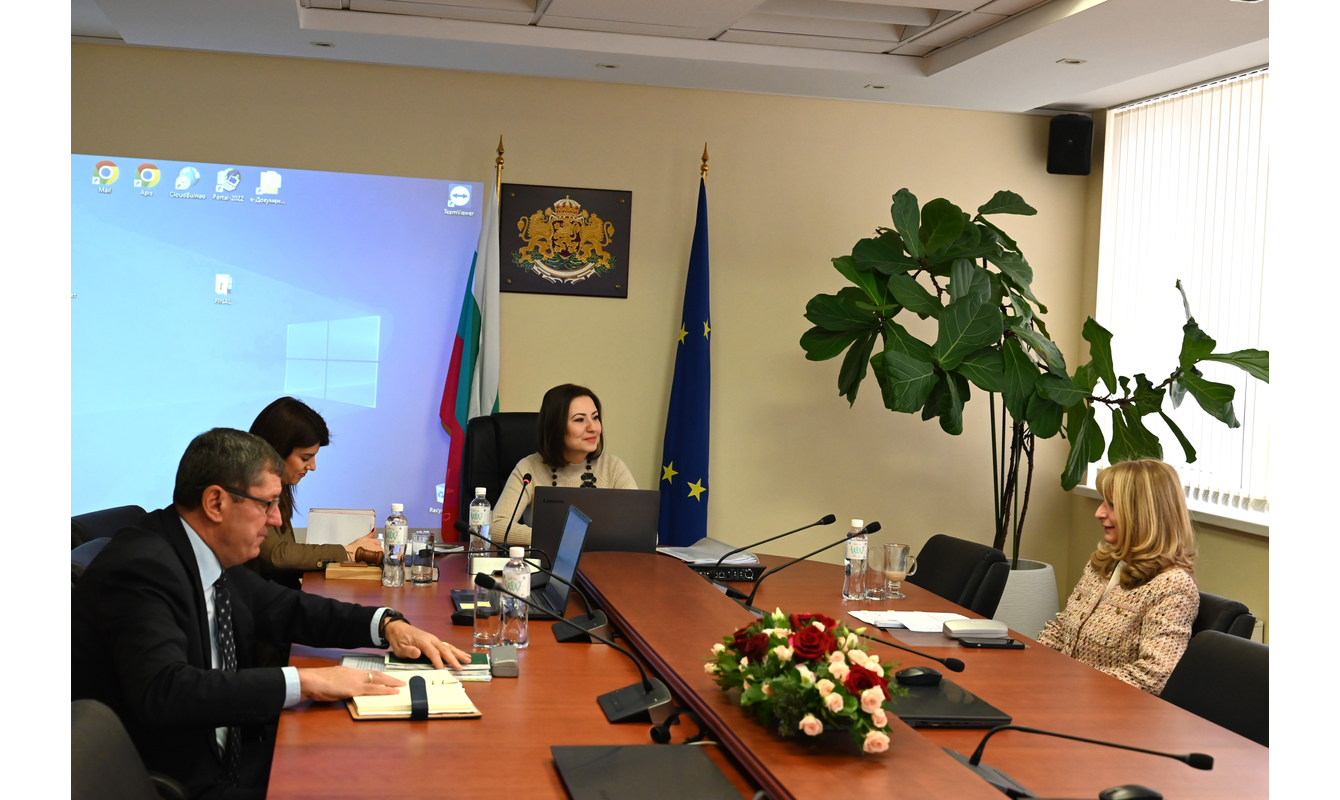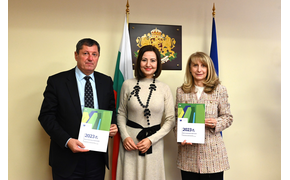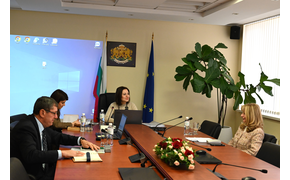
Iliana Ivanova: There are no mistakes made in the field of agriculture and natural resources in Bulgaria. The main problem is the delayed absorption of EU funds
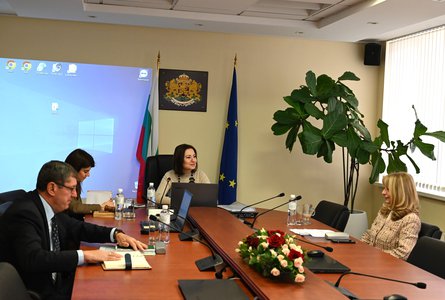
For Bulgaria, no quantitative errors have been found in the management of EU funds in the field "Agriculture and natural resources". Errors have been found in the field "Cohesion policy". The country's main problem lies in the delay in the absorption of EU funds, to which political instability also contributes.
This was stated by Iliana Ivanova, Member of the European Court of Auditors. She presented today the Annual Report of the European Court of Auditors for 2023 to the management of the Bulgarian National Audit Office: Ms Goritsa Grancharova-Kozhareva, Acting President, Mr Toshko Todorov, Vice-President, and Prof. Georgi Ivanov and Mr Emil Evlogiev - Members.
Particularly pronounced is the problem in the absorption of the funds under the Recovery and Resilience Plan for Bulgaria, Ms Ivanova emphasised. She underlined that there are unresolved issues at the global level in the EU related to transparency and accountability, the way the funds from this financial model are spent, and whether these funds can be traced to the final beneficiary. Regrettably, there are no precise definitions in the EU regulations and legislation on how the milestones and targets under the Plan are defined, and the ECA acknowledges this fact. However, this allows the countries and the European Commission to interpret them differently, Ms Ivanova explained. The real risks for the countries are related to loss of financing, unpaid obligations, debt increase, inflation, etc.
The overall material error rate for EU budget expenditure has increased in 2023 to 5.6% against 3% in 2021 and 2.7% in 2020, and 64% of audited expenditure is assessed as high risk. One of the reasons for this increase is the actual payments that are taking place since the end of the COVID crisis, when this process was almost frozen.
The highest error rate is in the area of Cohesion policy - 9.3%, and the reason is again the large volume of transactions, Ms Ivanova said. In the area of "Single Market, Innovation and Digital Environment", it accounts for 3.3%, which is also above the materiality threshold. The main reason is the high complexity of the rules and the complicated procedure for the beneficiaries, especially for those who encounter them for the first time. Therefore, the EU will seek solutions on how to simplify the funding model, but not at the expense of the control, Ms Ivanova underlined.
The lowest error rate in the EU budget is in the field of Agriculture and Natural Resources - 2.2%, but in payments for rural areas, where the high-risk expenditure is, it still exists.
The Bulgarian National Audit Office also faces these challenges in its control of the management of EU funds, and will continue to be a guarantor not only of the legality of public spending, but also of achieving real improvements in the lives of people, which is most visible in performance audits, Ms Grancharova-Kozhareva said during the meeting. She specified that the management do its best to attract young and professionally trained staff as auditors in the institution.
Links to the ECA annual reports for 2023:
https://www.eca.europa.eu/ECAPublications/AR-2023-AIB/AR-2023-AIB_BG.pdf
https://www.eca.europa.eu/ECAPublications/AR-2023/AR-2023_BG.pdf


